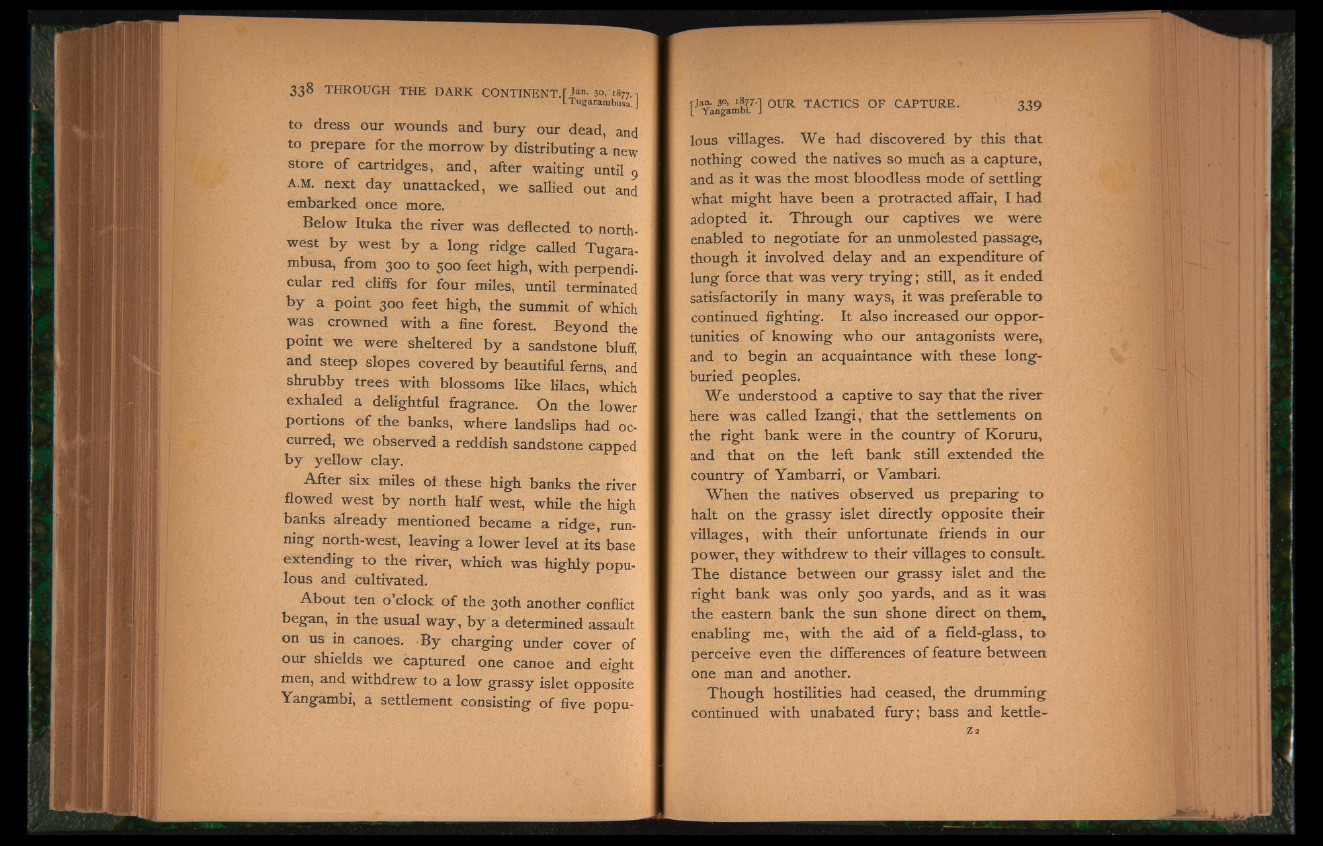
to dress our wounds and bury our dead, and
to prepare for the morrow by distributing a new
store of cartridges, and, after waiting until 9
A.M. next day unattacked, we sallied out and
embarked once more.
Below Ituka the river was deflected to northwest
by west by a long ridge called Tugara-
mbusa, from 300 to 500 feet high, with perpendicular
red cliffs for four miles, until terminated
by a point 300 feet high, the summit of which
was crowned with a fine forest. Beyond the
point we were sheltered by a sandstone bluff,
and steep slopes covered by beautiful ferns, and
shrubby trees with blossoms like lilacs, which
exhaled a delightful fragrance. On the lower
portions of the banks, where landslips had occurred,
we observed a reddish sandstone capped
by yellow clay.
After six miles of these high banks the river
flowed west by north half west, while the high
banks already mentioned became a ridge, run-
ning north-west, leaving a lower level at its base
extending to the river, which was highly populous
and cultivated.
About ten o’clock of the 30th another conflict
began, in the usual way, by a determined assault
on us in canoes. By charging under cover of
our shields we captured one canoe and eight
men, and withdrew to a low grassy islet opposite
Yangambi, a settlement consisting of five popu-
[J Yan°a^bl7'] OUR TACTICS OF CAPTURE. 3 3 9
lous villages. We had discovered by this that
nothing cowed the natives so much as a capture,
and as it was the most bloodless mode of settling
what might have been a protracted affair, I had
adopted it. Through our captives we were
enabled to negotiate for an unmolested passage,
though it involved delay and an expenditure of
lung force that was very trying; still, as it ended
satisfactorily in many ways, it was preferable to
continued fighting. It also increased our opportunities
of knowing who our antagonists were,
and to begin an acquaintance with these long-
buried peoples.
We understood a captive to say that the river
here was called Izangi, that the settlements on
the right bank were in the country of Koruru,
and that on the left bank still extended the
country of Yambarri, or Vambari.
When the natives observed us preparing to
halt on the grassy islet directly opposite their
villages, with their unfortunate friends in our
power, they withdrew to their villages to consult.
The distance between our grassy islet and the
right bank was only 500 yards, and as it was
the eastern bank the sun shone direct on them,
enabling me, with the aid of a field-glass, to
perceive even the differences of feature between
one man and another.
Though hostilities had ceased, the drumming
continued with unabated fury; bass and kettle